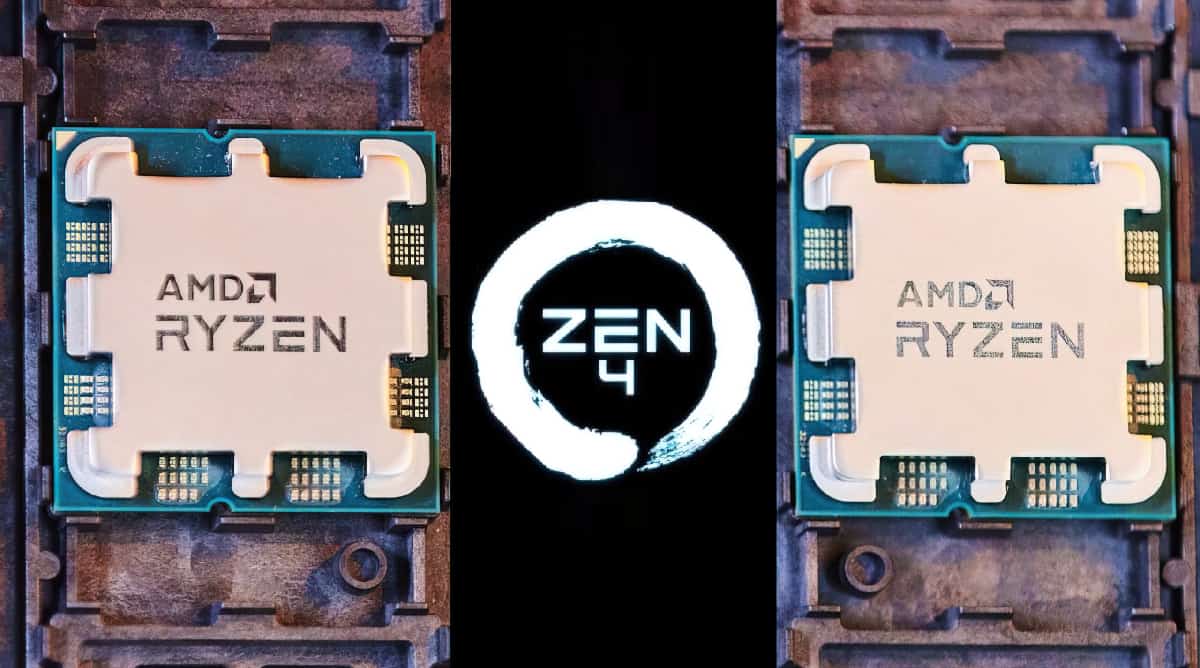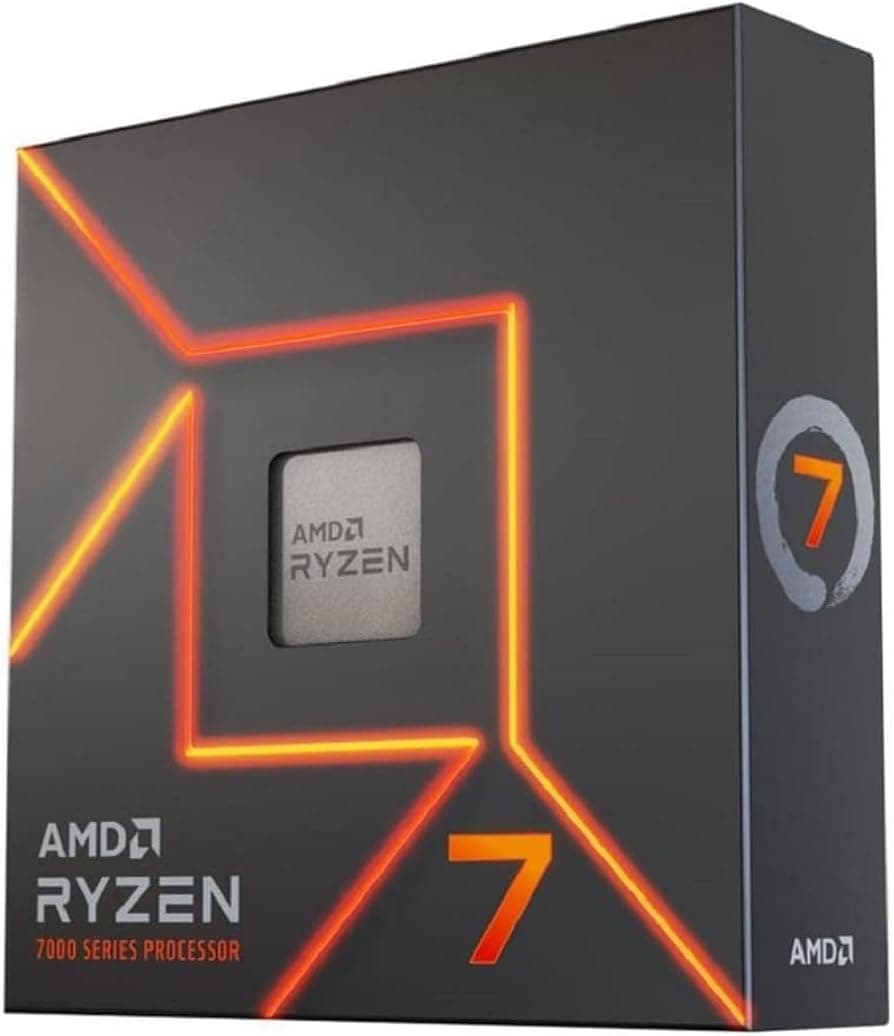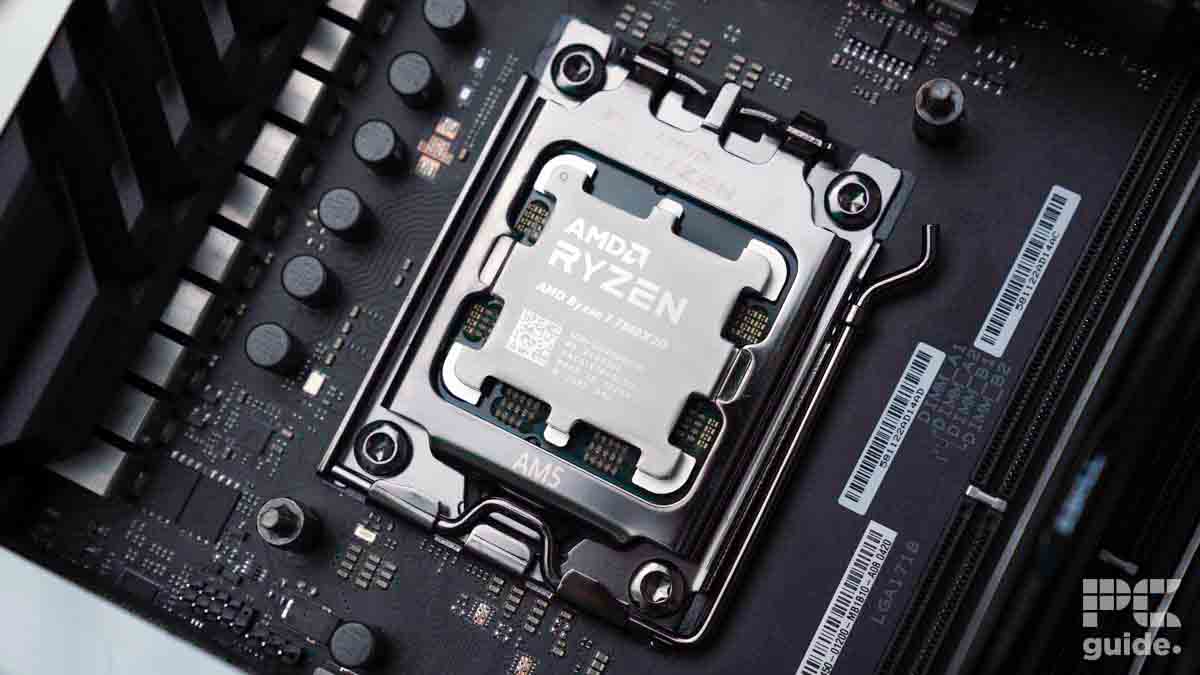Ryzen 7 7800X vs the Ryzen 7 7800X3D

Table of Contents
The Ryzen 7 platform is the sweet spot for PC gaming. Building a rig with a Ryzen 7 will ensure the best price and performance for every game you can think of. These CPUs will deliver a good amount of cores and the perfect speed. On the cusp of all new components, it will be interesting to see just how far AMD is willing to go with its 3D V-cache internals as the Ryzen 7 7800X vs the Ryzen 7 7800X3D go toe to toe.
In this article, we will compare the specs, price, and performance between two of the best gaming solutions out of AMD: the Ryzen 7 7800X and its forthcoming cousin, the 7800X3D. However, it is worth noting that both of these chips have not hit the market yet.
Prime Day is finally here! Find all the biggest tech and PC deals below.
- Sapphire 11348-03-20G Pulse AMD Radeon™ RX 9070 XT Was $779 Now $739
- AMD Ryzen 7 7800X3D 8-Core, 16-Thread Desktop Processor Was $449 Now $341
- ASUS RTX™ 5060 OC Edition Graphics Card Was $379 Now $339
- LG 77-Inch Class OLED evo AI 4K C5 Series Smart TV Was $3,696 Now $2,796
- Intel® Core™ i7-14700K New Gaming Desktop Was $320.99 Now $274
- Lexar 2TB NM1090 w/HeatSink SSD PCIe Gen5x4 NVMe M.2 Was $281.97 Now $214.98
- Apple Watch Series 10 GPS + Cellular 42mm case Smartwatch Was $499.99 Now $379.99
- ASUS ROG Strix G16 (2025) 16" FHD, RTX 5060 gaming laptop Was $1,499.99 Now $1,274.99
- Apple iPad mini (A17 Pro): Apple Intelligence Was $499.99 Now $379.99
*Prices and savings subject to change. Click through to get the current prices.
The Ryzen 7 7800X3D was revealed at CES 2023 alongside the whole X3D SKUS that will hit the market in February 2023. And, although, the public was expecting the 7800X to be revealed, the CPU was not mentioned. Ever since AMD has been making CPUs the 0800 solutions have existed, so it wouldn’t be weird that it happens this time. We already have some specs for the CPU, so we will use that to compare the two.
Ryzen 7 7800X vs Ryzen 7 7800X3D: Specs comparison
The first aspect to mention in this case is how different the technology these two CPUs use to increase performance. The 7800X uses AMD Turbo Core technology and adds more cores to augment speed, while the X3D version uses 3D V-cache technology. Let's see what each of these two technology chains means under the chipmaker.
The X3D technology is a solution from AMD to increase the performance and speed of a CPU by stacking more cache memory in the unit so it can use more space to store immediate data and avoid the unit having to access the internal storage, which is slower. In 2022, this technology proved to be the most efficient way to drastically improve the gaming results a CPU could achieve.
On the other side, AMD Turbo Core is a technology that allows certain AMD processors to automatically increase their clock speed when certain conditions are met, such as when the processor is operating below a certain temperature and power threshold. This allows the processor to perform at a higher speed when needed, providing a boost in performance for demanding tasks. It is available in certain AMD processors, such as the AMD FX series and the AMD A-series APUs.
| Ryzen 7 7800X | Ryzen 7 7800X3D | |
| Architecture | Zen 4 | Zen 4 |
| Cores / Threads | 10 / 20 | 8 / 16 |
| Base clock speed | 4.5 GHz | 4.4 GHz |
| Boost clock speed | 5.4 GHz | 5.0GHz |
| Cache L3 | 40MB | 96MB |
| TDP | 105 W | 120W |
With the increase in cores and high boost clock speed, the 7800X is able to achieve better results in gaming environments and, of course, in multithreaded activities such as content creation tasks. While the 7800X3D uses the non-3D raw power to endure during multi-thread activities and uses the extra cache to rip the floor in gaming.
Ryzen 7 7800X vs 7800X3D: Price
It’s difficult to compare pricing for these two CPUs. On the day we've written this article, there aren't official prices for either of them. However, we might be able to make ourselves an idea of pricing. According to the 5800X3D revealed in 2022 and how it was priced, we could think the 7800X3D, which is the exact new version of the former, might cost around $500. AMD can't go too high with the pricing if they want to keep the X3D SKUs competitive when compared to the Intel KS versions. Although gaming performance for these CPUs is big enough to cast their shadow over Intel, pricing is a very important aspect users look at before making a final decision.
Respectively, the Ryzen 7 7800X has not even been announced, so we have no idea what it might cost. However, through a bit of logic and math, this CPU is sandwiched between the 7700X and the 7900X, so its pricing should be around $449 – a price that feels fair for what the unit delivers.
Ryzen 7 7800X vs 7800X3D: Performance
The Ryzen 7 7800X has a base clock speed of 4.5 GHz and a boost clock speed of 5.4 GHz, which means it can reach speeds of up to 5.4 GHz when operating under optimal conditions. This can provide a significant performance boost for tasks that benefit from high clock speeds, such as gaming and video editing. It also has 40MB of L3 cache, which can help improve performance by allowing the processor to quickly access frequently-used data.
The Ryzen 7 7800X3D, on the other hand, has 8 cores and 16 threads, its base clock speed is 4.4GHz, and the boost clock speed is 5.0GHz, which is slightly lower than the 7800X. However, it has 96MB of L3 cache, which is much larger than the 7800X. This can help the processor handle larger data sets and improve performance in tasks such as video rendering and scientific simulations. The TDP of this processor is also higher than 7800X, 120W.
In general, the Ryzen 7 7800X3D may be better suited for tasks that benefit from a larger cache and are less sensitive to clock speeds, while the Ryzen 7 7800X may be better for tasks that benefit from high clock speeds.
Final thoughts
The Ryzen 7 7800X and Ryzen 7 7800X3D are two high-performance processors from AMD that offer different advantages for different types of tasks.
The Ryzen 7 7800X uses AMD Turbo Core technology and has more cores to increase speed and provide a boost in performance for demanding tasks, making it well-suited for gaming and content creation. It also has a high boost clock speed, which can provide additional performance gains in these types of tasks.
The Ryzen 7 7800X3D, on the other hand, uses 3D V-cache technology which allows it to have more cache memory and improve performance in tasks that benefit from a larger cache, such as video rendering and scientific simulations. It also has a larger L3 cache than 7800X. The X3D technology is considered to be the most efficient way to improve the gaming results in a CPU.
In conclusion, the Ryzen 7 7800X is an excellent choice for gamers and content creators who want a processor that can handle demanding tasks with high clock speeds and multiple cores, while the Ryzen 7 7800X3D is better suited for tasks that require a large amount of cache memory. Both processors are built on the latest Zen 4 architecture, providing high-performance and power-efficient computing.
- NOW READ – Where to buy the Ryzen 7 7800X3D



